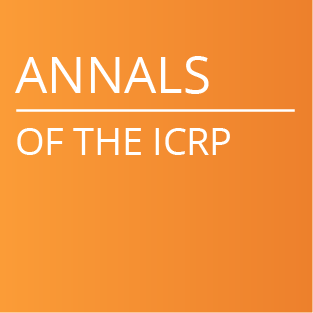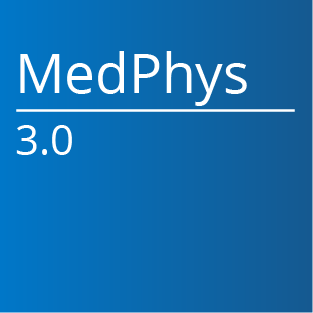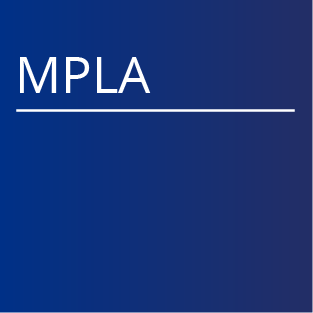| This Policy is No Longer Active. | |||
| Policy number | Policy name | Policy date | Sunset date |
| PP 15-D | Conflict of Interest | 11/19/2020 | 12/31/2025 |
| Section No section assigned |
|||
| Policy source | |||
| November 19 - 20, 2020 Board of Directors Meeting | |||
| Policy text | |||
|
Table of Contents Section II. Interests or Relationships That Require Disclosure Compensation, Remuneration, Funding, and Employment Relationships Ownership or Investment Interests Leadership Positions in Other Organizations Section III. The Disclosure Process Required Disclosures in AAPM Reports and Other Publications Disclosure Statement (inserted at the beginning of the document) Disclosure Statement (inserted at the close of the document) Section IV. Addressing Potential Conflicts of Interest Section V. Conflict of Interest for Journal Publications Section VI. Confidentiality of Conflict of Interest Disclosures Section VII. AAPM Cross Reference Documents All AAPM leaders have an obligation to make decisions and conduct affairs of the organization based, first and foremost, upon the desire to promote the AAPM and its mission. The term “leaders” shall be used in this policy to refer to: the Executive Committee; members of the Board of Directors; council, committee, subcommittee, work group, task group, and unit chairs; and council, committee, subcommittee, working group, task group, and unit members. The goals of this policy are to:
All members of the AAPM are expected to adhere to the AAPM Code of Ethics. There may be other codes of conduct to which the member is bound. The member bears the responsibility to harmonize these obligations. AAPM members must strive to be impartial in all professional interactions, and must disclose and formally manage any real, potential, or perceived conflicts of interest A conflict of interest is a situation in which one’s position of trust with a party is actually, or potentially, compromised by virtue of relationships with other parties and/or by self-interest. Conflict of interest is not inherently unethical, but there is a risk that unethical behaviors can arise from incentives inherent in the conflict of interest. Conflicts may exist within an organization, a regulatory or accrediting body, an educational setting, in industry, or in clinical practice environments and may consist of financial, political, or personal interests. Conflicts of interest can be difficult for the conflicted individual to recognize, and for that reason it is useful to seek independent assessment of a situation in which decision-making affects multiple parties with whom the individual has authority. A conflict of interest may arise when a member has a role, investment or obligation, or receives compensation or other benefit from another organization or entity, and where that relationship might bias decisions made on behalf of AAPM or suggest the member’s loyalty is divided between AAPM and the other organization. A “competing interest” might arise in a transaction between a member volunteer or paid relationship with a third party, which may compromise the member’s ability to provide unbiased loyalty to AAPM. This policy sets no monetary threshold for a conflict of interest. This AAPM Conflict of Interest policy extends to AAPM member spouses, domestic partners, parents or children who would benefit from a “competing interest” transaction. The AAPM staff handbook addresses employee conflict of interest and refers staff to the AAPM Executive Director or AIP HR representative with questions. In addition, AAPM staff sign the AAPM conflict of interest statement each year. A conflict might arise when an AAPM member has personal or professional hopes for a particular outcome or result that would potentially influence action or advocacy in a volunteer service position. Management of the conflict can be by disclosure, recusal, or elimination of the conflict. Section II. Interests or Relationships That Require Disclosure Compensation, Remuneration, Funding, and Employment Relationships Members bear the responsibility of managing direct conflicts of interest (compensation, remuneration, funding, advancing the business interests of the member’s employer) that might arise as a result in association with work done for the AAPM. Ownership or Investment Interests An ownership or investment interest includes all financial, ownership or investment interests, including stock, stock options, partnership interests, limited liability company interests, patents, licenses, royalties, or any other type of ownership or investment interest in an entity related to the AAPM or to research, practice or education, in a field of Medical Physics. Leadership Positions in Other Organizations A leadership position includes providing service as an officer, board member, committee chair or vice-chair or other position of leadership in a medical, professional or scientific corporations, organizations or societies. One of the fiduciary duties a volunteer owes to the AAPM is the duty of loyalty, having undivided allegiance to the AAPM when making decisions or taking actions affecting the AAPM. Serving in a leadership position in another organization does not, in and of itself, present a conflict of interest; however a possible conflict of interest could arise in situations when a volunteer has fiduciary or other obligations to another organization and those obligations conflict or compete with the interests of the AAPM. These conflicts typically arise when a matter presents at one organization that could affect the interests of the second. Serving concurrently two organizations that may have competing interests could cause conflict and should be carefully managed. Section III. The Disclosure Process All persons participating in AAPM activities (both member and non-member) in volunteer positions, or those receiving compensation or reimbursement from AAPM, will be required to complete a disclosure form. An up to date disclosure is required prior to serving as a volunteer. Conflict of interest disclosures must be made at least annually via the AAPM website or at any time an interest or relationship defined in Section II changes. Non-members who are in service to the AAPM (volunteer or paid) are subject to the same conflict of interest requirements as members. AAPM members, affiliates, and staff can review the conflict of interest disclosures. The member must update the disclosure form if any material changes or additions to the submitted information arise. While not all conflicts of interest must be avoided, members must disclose conflicts of interest in writing to any involved party and resolve or manage them appropriately. Many conflicts of interest can be mitigated by establishing well defined roles and boundaries or by having a conflict of interest management plan that is administered by an uninvolved party. When the conflicts of interest cannot be otherwise managed, the members must recuse themselves from the specific activities. In association with work undertaken for the AAPM, where explicit procedures are in place for conflict of interest management, the member must abide by them. To ensure fairness and equity, members should not participate in supervision, employment actions, evaluation, or the direct setting of salary or wages for an individual for whom the member cannot be assured of having reasonable objectivity because of a current or prior close personal relationship. Regardless of how the conflict of interest is disclosed or managed, the responsibility remains with the member to act in accordance with the AAPM Code of Ethics in all matters. Required Disclosures in AAPM Reports and Other Publications All AAPM reports or other publications are required to include the following disclosure statements: Disclosure Statement (inserted at the beginning of the document) The Chair of the [insert full group name here] has reviewed the required Conflict of Interest statement on file for each member of [insert full group name here] and determined that disclosure of potential Conflicts of Interest is an adequate management plan. Disclosures of potential Conflicts of Interest for each member of [insert full group name here] are found at the close of this document. Disclosure Statement (inserted at the close of the document) The members of [insert full group name here] listed below attest that they have no potential Conflicts of Interest related to the subject matter or materials presented in this document. The members of [insert full group name here ] listed below disclose the following potential Conflict(s) of Interest related to subject matter or materials presented in this document. Section IV. Addressing Potential Conflicts of Interest The AAPM Ethics Committee will oversee the AAPM’s conflict management process. A potential conflict of interest may be identified either by an individual member (through self-disclosure) or by another party. The Ethics Committee is charged to:
A conflict of interest in serving the AAPM exists when a member may place one’s own self-interest; the interest of one’s company, organization, university or other entity for which the individual serves in a leadership, membership, employment, or ownership capacity; or the interest of any third party above that of the AAPM. If a relationship or transaction represents an actual, potential, or apparent conflict of interest, management or resolution is accomplished using one or more of the following conflict management options. Management options as a result of disclosure of conflict of interest:
Section V. Conflict of Interest for Journal Publications Members must explicitly declare all financial interests with respect to business or corporate entities when submitting manuscripts or giving presentations, even if such arrangements are tangential to the subject matter of the work. Such financial interests may include sponsorship, travel reimbursement, performance-based bonus incentives, or stock ownership. Members acting as editors or peer reviewers:
Section VI. Confidentiality of Conflict of Interest Disclosures AAPM member conflict of interest statements are open and available to AAPM members when requested from AAPM Headquarter staff. Section VII. AAPM Cross Reference Documents (1) AAPM Policy PP 7 - Process for Selection of AAPM Nominees for the ABR Physics Trustee (3) AAPM Policy PP 24 - Code of Ethics for the American Association of Physicists in Medicine |
|||
| Policy version history | ||||
| Policy number | Policy name | Policy date | Sunset date | Active? |
|---|---|---|---|---|
| PP 15-A | Conflict of Interest | 7/25/2004 | 11/27/2009 | Inactive |
| PP 15-B | Conflict of Interest | 11/28/2009 | 12/1/2015 | Inactive |
| PP 15-C | Conflict of Interest | 12/2/2015 | 12/15/2020 | Inactive |
| PP 15-D | Conflict of Interest | 11/19/2020 | 12/31/2025 | Inactive |
| AP 123-A | Conflict of Interest | 11/19/2020 | 12/31/2025 | Inactive |
| AP 123-B | Conflict of Interest | 3/9/2023 | 12/31/2025 | Inactive |
| AP 123-C | Conflict of Interest | 3/9/2023 | 12/31/2028 | Active |



















